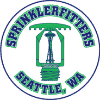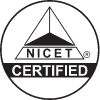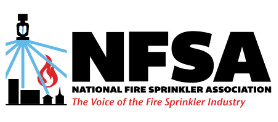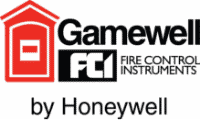Yes. The NFPA, or National Fire Protection Association, reports that buildings that have functioning fire sprinkler systems experience 50% to 66% less property destruction and death risk on average when compared to buildings that do not have a fire sprinkler system. A fire sprinkler system will save you money and, most importantly, human lives.
Yes. Fire sprinkler systems are a great line of defense when a fire is blazing, but an alarm system will give you a warning as soon as possible, allowing you more time to safely get out of the endangered buildings. Fire alarm systems can also be enabled to contact the local fire department automatically, reducing the amount of time the fire has to burn without professionals to fight it.
A properly functioning fire sprinkler system can do a lot before firefighters arrive on scene. It may be able to slow down the spread and intensity of the flames, containing them to a certain area. This creates a safer working environment for firefighters by:
- Lowering temperatures.
- Improving visibility.
- Providing more time for occupants to evacuate.
- Diluting the gases created by fires.
Different types of extinguishers put out different types of fires and use different extinguishing agents. Northwest Fire Systems will determine which extinguisher is proper for your facilities based on your specific fire risks.
Multipurpose – Will be labeled ABC and can be used on all 3 fire classes.
Pressurized Water Extinguishers – These fire extinguishers are meant to be used for for Class A fires and should never be used to put out flammable liquid or electrical fires.
Ammonium Phosphate Extinguisher – These can be used to extinguish Class A, B, and C fires. However, these should never be used in a commercial grease fryer, because it may reduce the fire fighting power of the automatic fire protection system.
Carbon Dioxide – These are rated to fight Class B and C fires. No residue is left behind after use.
Dry Chemical Extinguishers – These types interrupt the reaction of chemicals which create a fire, thereby extinguishing the fire.
Sodium Bicarbonate – these are used for class B and C fires. When extinguishing grease fires, this type is preferable to use when compared to the other dry-chemical fire extinguishers.
Potassium Bicarbonate, potassium chloride, urea-base potassium bicarbonate – these dry chemical fire extinguishers use less fire fighting agent than sodium bicarbonate on similar fires. FFFP, AFFF, or foam extinguishers cover the burning materials so that the fire cannot get air as fuel to feed the flames.
When a fire extinguisher is used, the pressurized gas within is released. Even if the pressure is slightly released by a small discharge, it may make it so that the extinguisher cannot properly discharge the fire fighting agent again when it is needed.
You can tell the pressure by looking at the gauges and seeing if the arrow is pointed to the green area. If the arrow is not pointed towards the green area, then your fire extinguisher needs to be recharged immediately so that it will be prepared to fight a fire in an emergency.
NFPA requirements vary by industry and associated risk, but your fire alarm and sprinkler systems should be tested and inspected regularly to ensure their proper function. When a qualified Northwest Fire Systems technician inspects your system, any problems from wear and tear will be found, which can be taken care of before they become worse.
Fire sprinklers use much less water when compared to a firefighting team. This is because, contrary to a popular perception, one sprinkler turning on does not begin a chain reaction which sets off all sprinklers. Fire sprinklers are designed to turn on individually in the specific areas that they are needed—triggered into action by the heat of fire. If a fire is contained to one room, only the sprinkler head within that room will start.
If your facility does not have sprinklers, you’ll have to wait an average of 9-12 minutes for the fire department to get to you. Those 9-12 minutes spent waiting for firefighters to arrive at your building give the fire ample time to spread through the building. When this happens, the fire department will have to use even more water to extinguish the blaze. Firefighters do not worry about the amount of water they use or where it goes in your property. Fire sprinklers contain and even extinguish fires quickly, minimizing the amount of water used and the damage to your property.
Since there are many different aspects to a fire alarm system, different components are required to be tested or inspected at different intervals throughout the year. A properly certified and trained technician must inspect and test parts of the alarm system to meet specific, local codes and requirements.
There are many components of an alarm system that must be tested and inspected including, but not limited to:
- Sprinkler systems attached to the alarm system.
- Batteries.
- Main panel functions.
- Auditory and visual alarm systems, such as chimes, strobe lights and horns.
We offer reliable 24 hour service. Whether it’s Monday at noon, or midnight on Christmas Eve, Northwest Fire Systems has your back! We always have a certified technician on-call for your emergency service needs. Call 206-772-7502 when you need emergency fire system service.





